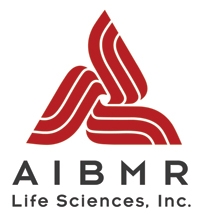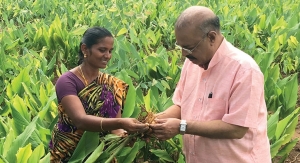By Texas A&M AgriLife Communications02.04.19
Patrick Stover, PhD, vice chancellor for agriculture and life sciences at Texas A&M University and director of Texas A&M AgriLife Research, was part of a blue-ribbon panel that has released its recommendations on maintaining trust in nutrition science.
The panel was part of the American Society for Nutrition (ASN), which has published the report, “Best Practices in Nutrition Science to Earn and Keep the Public’s Trust.”
The report presents the panel’s six recommendations regarding how to work collaboratively with various stakeholders while maintaining transparency and scientific rigor in nutrition science. It has been published by the American Journal of Clinical Nutrition and is available here.
The panel was created in response to a growing perception among researchers that public trust in nutrition science is eroding. Nutrition information is increasingly being received from an expanding variety of sources—not all of which are clear about their motivations, qualifications or ethical standards, according to the panel.
Without clear and transparent earmarks to measure the reliability of the information being received, the public is left to question where the “expert” information they receive is originating and whether it is trustworthy, according to the report.
The panel, an independent group composed of 11 members from a variety of disciplines, was charged with identifying best practices to allow effective collaborations. They were also asked to provide recommendations for ensuring ASN’s activities are transparent, advance research, and maintain scientific rigor, engendering trust among all nutrition science stakeholders.
After an extensive review of peer-reviewed literature concerning various aspects of trust in nutrition science, the panel crafted the following six recommendations:
Panelists also noted many of the members are not American Society for Nutrition members and do not work directly within the field of nutrition research.
The panel was chaired by Cutberto Garza, a pediatrician and recipient of the Alan Shawn Feinstein World Hunger Prize for Education and Research. He is a former vice-provost at Cornell University, provost and dean of faculties at Boston College, and director of the United Nations University Food and Nutrition Programme. He was joined by:
To ensure complete objectivity, the ASN Board of Directors had no influence or input on the discussions or recommendations of the panel.
Feedback from ASN members and non-members in the nutrition science community and elsewhere will be accepted from now until Feb. 15, allowing the public an opportunity to be part of the dialogue and help shape the future for ASN as well as the field of nutrition science. Following the feedback period, the ASN board of directors will determine a plan of action regarding how to implement the recommendations.
The panel was part of the American Society for Nutrition (ASN), which has published the report, “Best Practices in Nutrition Science to Earn and Keep the Public’s Trust.”
The report presents the panel’s six recommendations regarding how to work collaboratively with various stakeholders while maintaining transparency and scientific rigor in nutrition science. It has been published by the American Journal of Clinical Nutrition and is available here.
The panel was created in response to a growing perception among researchers that public trust in nutrition science is eroding. Nutrition information is increasingly being received from an expanding variety of sources—not all of which are clear about their motivations, qualifications or ethical standards, according to the panel.
Without clear and transparent earmarks to measure the reliability of the information being received, the public is left to question where the “expert” information they receive is originating and whether it is trustworthy, according to the report.
The panel, an independent group composed of 11 members from a variety of disciplines, was charged with identifying best practices to allow effective collaborations. They were also asked to provide recommendations for ensuring ASN’s activities are transparent, advance research, and maintain scientific rigor, engendering trust among all nutrition science stakeholders.
After an extensive review of peer-reviewed literature concerning various aspects of trust in nutrition science, the panel crafted the following six recommendations:
- Manage conflicts of interest in partnerships and activities;
- Uphold the standards for evidence-based conclusions in publications;
- Maintain effective dialogue between ASN, the public, and the media;
- Develop guidelines for conducting nutrition research funded by entities with conflicts of interest;
- Perform independent audits of adherence;
- Disclose all financial conflicts of interests and other sources.
Panelists also noted many of the members are not American Society for Nutrition members and do not work directly within the field of nutrition research.
The panel was chaired by Cutberto Garza, a pediatrician and recipient of the Alan Shawn Feinstein World Hunger Prize for Education and Research. He is a former vice-provost at Cornell University, provost and dean of faculties at Boston College, and director of the United Nations University Food and Nutrition Programme. He was joined by:
- Vinita Bali, former chair of the Global Alliance for Improved Nutrition Board;
- Catherine Bertini, winner of the World Food Prize in 2003 and a leader in agricultural development and humanitarian action;
- Eric Campbell, professor of medicine at the University of Colorado Center for Bioethics and Humanities and an expert in conflicts of interest in medicine and research;
- Edward Cooney, former executive director of the Congressional Hunger Center and recipient of the Gene White Lifetime Achievement Award for Child Nutrition;
- J. Michael McGinnis, an epidemiologist and executive officer of the National Academy of Medicine;
- Sylvia Rowe, president of SR Strategy, which provides consulting on health, nutrition, food safety, and risk issues;
- Robert Steinbrook, a clinician in internal medicine affiliated with the Yale School of Medicine, editor at large for JAMA Internal Medicine, and medical writer for JAMA, NEJM, and the Los Angeles Times, with expertise in conflicts of interest in medicine and health;
- Catherine Woteki, the previous undersecretary for U.S. Department of Agriculture-Research, Education and Economics mission area;
- Stover, ex-officio, and a past president of the ASN;
- John Courtney, ex-officio, chief executive officer of ASN.
To ensure complete objectivity, the ASN Board of Directors had no influence or input on the discussions or recommendations of the panel.
Feedback from ASN members and non-members in the nutrition science community and elsewhere will be accepted from now until Feb. 15, allowing the public an opportunity to be part of the dialogue and help shape the future for ASN as well as the field of nutrition science. Following the feedback period, the ASN board of directors will determine a plan of action regarding how to implement the recommendations.
























